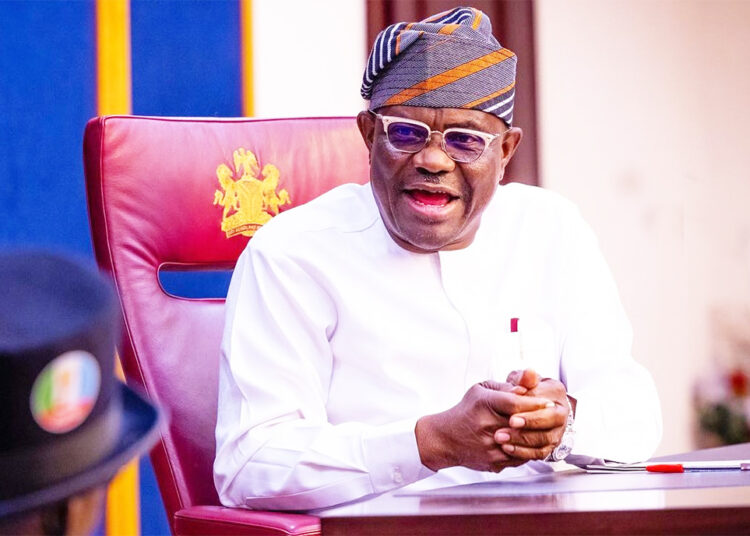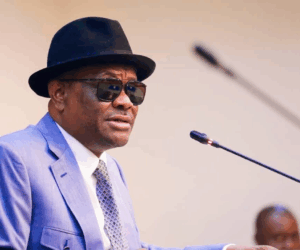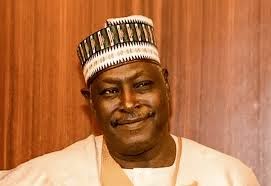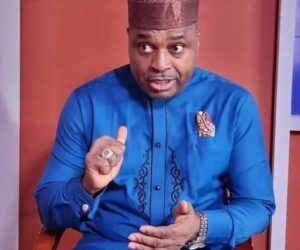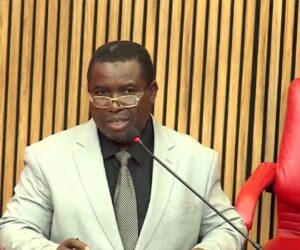1
Nyesom Wike, the Minister of the Federal Capital Territory (FCT), has called for transformational leadership in Africa in order to drive the continent’s development.
The former Rivers State governor said the 21st century Africa calls for a new leadership that would be bold and courageous in driving policies that would engender development in the continent.
Wike spoke in his keynote address at the 2025 Innovate Africa Conference held in Abuja on Thursday, with the theme, ‘Reimagining Africa’s Leadership and Investment’, where he commended Presidential Bola Ahmed Tinubu for his bold move in driving reforms like the removal of fuel subsidy, saying transformational leadership is not an abstract but a reality.
Wike said; To secure Africa’s future, we must first reimagine leadership itself. The time has come to move beyond transactional leadership, the kind driven by personal gain, patronage, and short-term calculations, to embrace transformational leadership rooted in vision, courage, service, and accountability,” he said.
“Leadership must not exploit, but empower; it must not rule, but serve; it must not merely transact, but transform. Many commentators agree that the greatest impediment to Africa’s progress and the chronic ailment that has stifled her development for decades is the plague of poor and mediocre leadership. Across the continent, both in military and civilian dispensations, leaders have often emerged through self-serving conspiracies that bear little or no relation to national interest or development priorities.
“Consequently, many African nations have been saddled with leaders unprepared for the enormity of leadership. The result is a tragic pattern of groping in the dark, with nations endlessly experimenting with the fundamentals of development: basic infrastructure, primary healthcare, functional economies, efficient democratic and judicial systems, and credible institutions,” he said.
He said Africa needs a new kind of leadership that is principles and prepared.
“The 21st century calls for a new kind of African leaders who are prepared, principled, and passionate. Leaders who embody vision, moral character, and resilience. Leaders who believe in Africa’s boundless possibilities and act decisively to unlock them. They must be bold enough to make difficult but necessary decisions; proactive enough to anticipate the future; and committed enough to build systems that prioritize excellence over mediocrity and performance over politics.
“The leadership that Africa deserves in the 21st century is one that is about caring rather than controlling. A true leader must see himself as a servant, humbled by the weight of responsibility he carries for the welfare of the people. Africa is in urgent need of servant-leaders—leaders who do not see themselves as bosses but as mentors genuinely committed to the building of communities and the upliftment of people. Harry Gordon Selfridge and John C. Maxwell capture this distinction beautifully: “A boss drives his team; a leader guides them. A boss relies on authority; a leader relies on trust and goodwill. A boss inspires fear; a leader inspires enthusiasm. A boss says, “I”; a leader says, “We.” A boss demands punctuality; a leader arrives early to lead by example. A boss blames when things go wrong; a leader fixes the problem. A boss knows the path; a leader walks it with the team. A boss says, “Go”; a leader rallies his people with, “Let’s go together!” True leadership, then, is not about position or power, but about inspiring, serving, and journeying with those you lead.” This is the kind of leadership Africa must embrace if we are to move from stagnation to transformation.
“Transformational leadership is not an abstract ideal; it is a living reality where bold vision meets purposeful action. Here in Abuja, we have witnessed how infrastructural renewal anchored on political will and strategic investment can turn aspiration into achievement. Roads that were once impassable are now open; bridges connect communities; public spaces once abandoned now thrive with life, enterprise, and hope. These are not mere structures of concrete and steel; they are symbols of what is possible when leadership dares to dream and to deliver.
“President Bola Ahmed Tinubu’s commitment to difficult but necessary reforms further reminds us that leadership is ultimately about sacrifice for the greater good. From the first day of his presidency, Tinubu demonstrated uncommon courage by confronting one of Nigeria’s most intractable challenges, the removal of the fuel subsidy.
“While previous administrations acknowledged its dangers, none dared to act. Tinubu did, understanding the cost but believing in the long-term gain. Today, this bold decision is beginning to yield results: states and local governments now receive higher revenues for development; the burden of debt accumulation is easing; and the price of petrol is gradually aligning with market realities under sound regulatory oversight.”
The FCT Minister challenged Africans, saying the future lies in their hands to uplift the continent.
“Africa’s future lies in the hands of Africans who believe in the power of their own ideas and ingenuity. The world has seen what Africa can do when it believes, when it builds ancient civilizations that still astonish scholars, when it produces leaders who changed the course of history, and when its sons and daughters abroad lead global innovation. That same spirit of greatness still resides within us.
“The time has come to believe again, not in promises made abroad, but in the promise that beats within our continent’s heart. When we unite our markets, harness our talents, and invest in our own future, we will not need to chase the world; the world will come chasing us. The rebirth of Africa will not be written in donor reports or policy prescriptions, but in the ingenuity of her people, the integrity of her leaders, and the industriousness of her youth and women.
“Africa must now rise above aid, rediscover her strength, and rebuild her institutions. We must remember that no one can do as much for us as we can do for ourselves, and that in this world of concrete interests, there is no free lunch and no lasting handout. Let us therefore reimagine investment, reclaim our self-reliance, and reposition Africa not as a continent waiting for benevolence, but as a continent prepared to lead. The future of global prosperity will be written here on African soil, by African hands, and for the glory of Africa and all humanity.”

